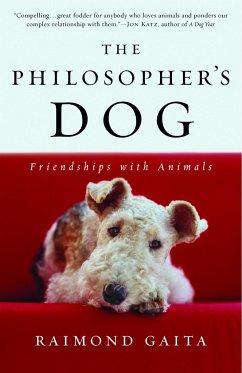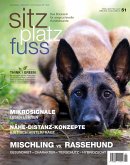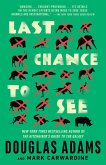The philosopher Raimond Gaita has always been fascinated by animals- their obvious intelligence and disturbing brutality, their uncanny responsiveness to our moods and needs, the deep feelings they elicit from us and seem to return. In this marvelous, luminous book, Gaita trains the lens of philosophy on the mystery and beauty of the animals he has known and loved best. The Philosopher's Dog is one of those rare works that engage the heart from the very first paragraph and haunt the mind long after one has finished reading. What does Gaita's dog, Gypsy, think about while she sits on her mat gazing out to sea for hours on end? Why did the irascible cockatoo Jack greet Gaita's father with kisses each morning but bite everyone else? How can we acknowledge that animals are sentient and yet deny that they have consciousness? Is it possible to love animals and still eat meat? In contemplating questions like these, Gaita weaves together personal stories-inspiring, sometimes heartbreaking accounts about the animals he and his family members have sheltered-with the reflections and analysis of a professional philosopher. A graceful, engaging stylist, Gaita is perfectly lucid as he grapples with great thinkers through the ages-from Socrates to Wittgenstein, Descartes to Hannah Arendt. And yet, as important as formal philosophy has been to him, Gaita frankly acknowledges that he has learned much about the nature of life from Gypsy and Jack and his courageously arrogant cat Tosca. In the end, he argues that love should be the essence of our bond with animals, the critical factor that guides how we treat them and think about their place in our world. In pondering the meaning and moralityof his relationships with animals, and with the natural world more generally, Raimond Gaita has created a surprising masterpiece, a book of startling insights, spellbinding stories, meticulous observations, and wise reflection. At once engrossing and thought-provoking, The Philosopher's Dog is a supremely enjoyable book. "From the Hardcover edition.
Hinweis: Dieser Artikel kann nur an eine deutsche Lieferadresse ausgeliefert werden.
Hinweis: Dieser Artikel kann nur an eine deutsche Lieferadresse ausgeliefert werden.
'In everything that Raimond Gaita writes we sense a generous heart at work, as well as a lucid intelligence. The Philosopher's Dog is a book to give to the kind of person who asks what philosophy is for.' - J. M. Coetzee
'Fascinating ... A thoughtful meditation on the relationship between humans and animals that crosses the boundary between the the philosophical and the personal and blends very well the anecdotal with the theoretical.' - The Sunday Tribune
' ... very well written, charming, reflective and provocative.' - Journal of Moral Philosophy
'Rai Gaita is a dog-lover, a philosopher and a gifted, sensitive writer. In this immensely readable and enjoyable book, he mixes the personal with the philosophical and the anecdotal with the profound to produce a series of illuminating reflections on what it means to be a creature and, more importantly, what it means to be fully human. It is a great pleasure to read and should not be missed by anyone who still hopes to find in the works of philosophers things that are both interesting and important.' - Ray Monk
'Fascinating ... A thoughtful meditation on the relationship between humans and animals that crosses the boundary between the the philosophical and the personal and blends very well the anecdotal with the theoretical.' - The Sunday Tribune
' ... very well written, charming, reflective and provocative.' - Journal of Moral Philosophy
'Rai Gaita is a dog-lover, a philosopher and a gifted, sensitive writer. In this immensely readable and enjoyable book, he mixes the personal with the philosophical and the anecdotal with the profound to produce a series of illuminating reflections on what it means to be a creature and, more importantly, what it means to be fully human. It is a great pleasure to read and should not be missed by anyone who still hopes to find in the works of philosophers things that are both interesting and important.' - Ray Monk








